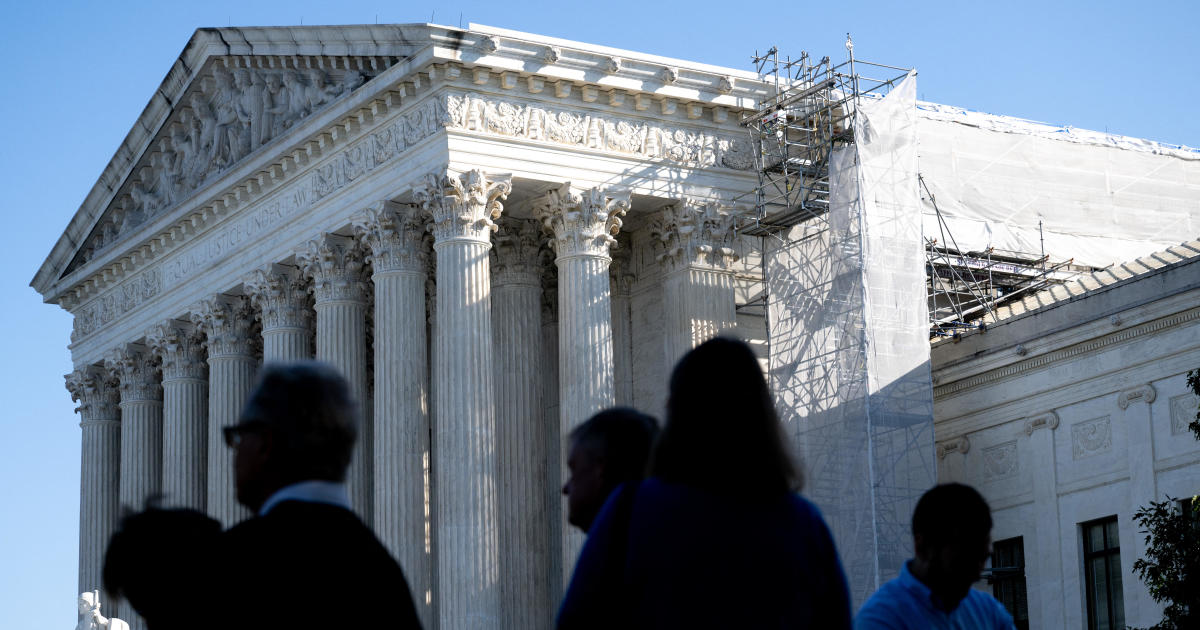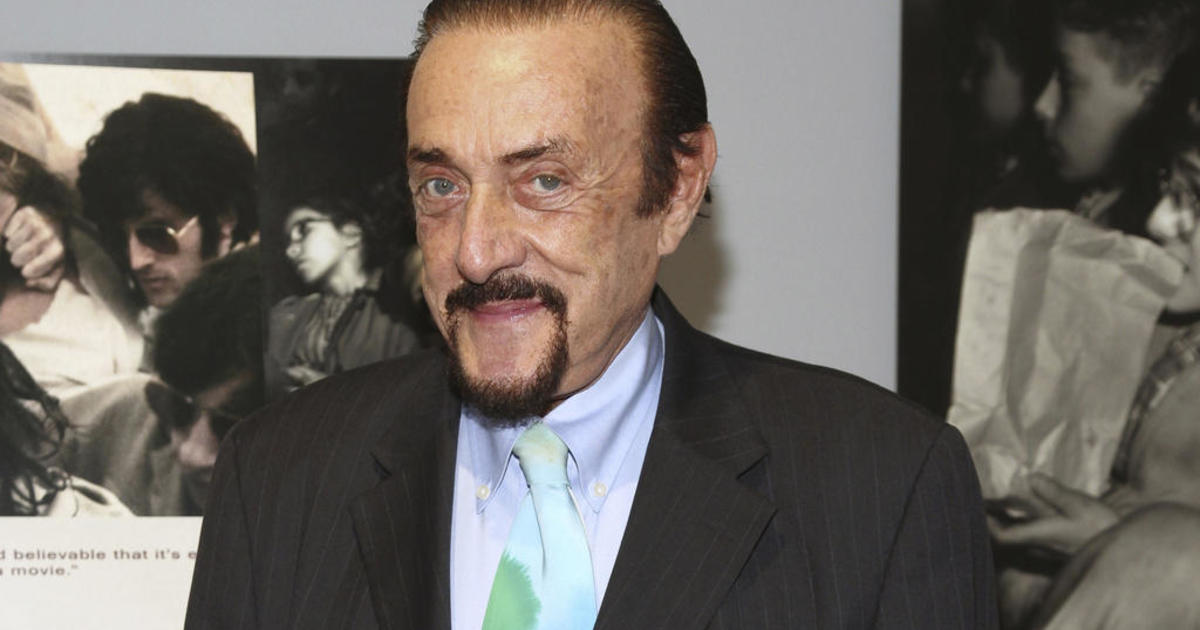Supreme Court tosses decision that shielded officers who arrested citizen journalist

Supreme Court convenes for new term
Washington — The Supreme Court on Tuesday tossed out a lower court decision that shielded from liability Texas law enforcement officers who arrested a local citizen journalist after she sought information from a police source.
The case of journalist Priscilla Villarreal, who is known to her readers in Laredo, Texas, as “Lagordiloca,” pits the First Amendment’s guarantee of a free press against the doctrine of qualified immunity, which provides legal protections for police and other government officials.
Villarreal’s challenge attracted interest from a range of reporters, major news organizations and journalism nonprofits who have argued that the right to seek information from public officials is fundamental to the practice of journalism.
In its brief order, the Supreme Court wiped away the lower court decision that protected the police officers involved in her arrest and ordered additional proceedings.
Villarreal said in response to the high court’s order that it “marks a significant step toward rectifying the wrongs I have faced.”
JT Morris, an attorney with The Foundation for Individual Rights and Expression, which is representing Villarreal, cheered the decision.
“This case is vital for free speech, a free press, and ensuring officials are accountable when they trample the First Amendment,” he said.
Villarreal has been described as the “most influential journalist” in Laredo, and publishes information about local crime, traffic and other news to her Facebook page, “Lagordiloca News.” Her reporting sometimes rankles local government officials, according to court papers, including the Laredo Police Department.
In 2017, their frustrations boiled over. Villarreal had published two news reports based on tips from local citizens, one that named a U.S. Border Patrol agent who died by suicide and a second relaying information about a fatal traffic crash and Houston family that was hurt in the accident. For both, she reached out to a Laredo police officer who confirmed the information before the stories were published to her Facebook page.
Months later, Villarreal was arrested for allegedly violating a state law that makes it a felony for a person to solicit or receive information from a government official that has not yet been made public if it’s with the intent to obtain a benefit.
In the 23 years that it’s been on the books, the statute has never been enforced, according to her lawyers.
Villarreal turned herself in, and the criminal charges were dismissed after a local judge ruled the law was unconstitutionally vague. She then sued the police and prosecutors behind her arrest, arguing her First, Fourth and 14th Amendment rights were violated.
The officials sought to toss out the case, claiming they had qualified immunity. The doctrine shields public officials from lawsuits stemming from conduct on the job unless they violate clearly established constitutional rights. A federal district court agreed, but the decision was reversed by a three-judge panel on the U.S. Court of Appeals for the 5th Circuit.
“If the First Amendment means anything, it surely means that a citizen journalist has the right to ask a public official a question, without fear of being imprisoned,” Judge James Ho, appointed by former President Donald Trump, wrote for the judges. “Yet that is exactly what happened here: Priscilla Villarreal was put in jail for asking a police officer a question. If that is not an obvious violation of the Constitution, it’s hard to imagine what would be.”
But the full slate of judges from the 5th Circuit reheard Villarreal’s case and in January voted 9-7 to uphold the district court’s dismissal.
The divided 5th Circuit found that Laredo prosecutors and police have qualified immunity, concluding that they reasonably believed Villarreal broke state law when she asked an “unofficial” government source for information, instead of waiting for an official police report, and benefited from it. The nine judges also rejected the panel’s finding that Villarreal’s arrest violated the First Amendment.
Ho, in dissent, wrote the majority’s reasoning was “a recipe for public officials to combine forces with state or local legislators to do — whatever they want to do. It’s a level of blind deference and trust in government power our Founders would not recognize.”
In appealing the 5th Circuit’s decision to the Supreme Court, Villarreal’s lawyers wrote in a filing that its long-standing precedent “leaves no doubt that arresting Villarreal for asking the government for information and publishing the response violated the First Amendment — and every reasonable official would have known that.”
They warned that leaving the 5th Circuit’s decision in place entitles law enforcement to qualified immunity for using state laws as justification for First Amendment violations.
“Without reversal, the chill from the decision below will only spread wider, as ever-growing criminal codes provide a grab bag of statutes officials can wield against disfavored speech,” Villarreal’s legal team warned.
But Texas officials, led by Attorney General Ken Paxton, argued that they reasonably believed that Villarreal was seeking to solicit a leak of nonpublic information for her benefit.
Melissa Quinn is a politics reporter for CBSNews.com. She has written for outlets including the Washington Examiner, Daily Signal and Alexandria Times. Melissa covers U.S. politics, with a focus on the Supreme Court and federal courts.







